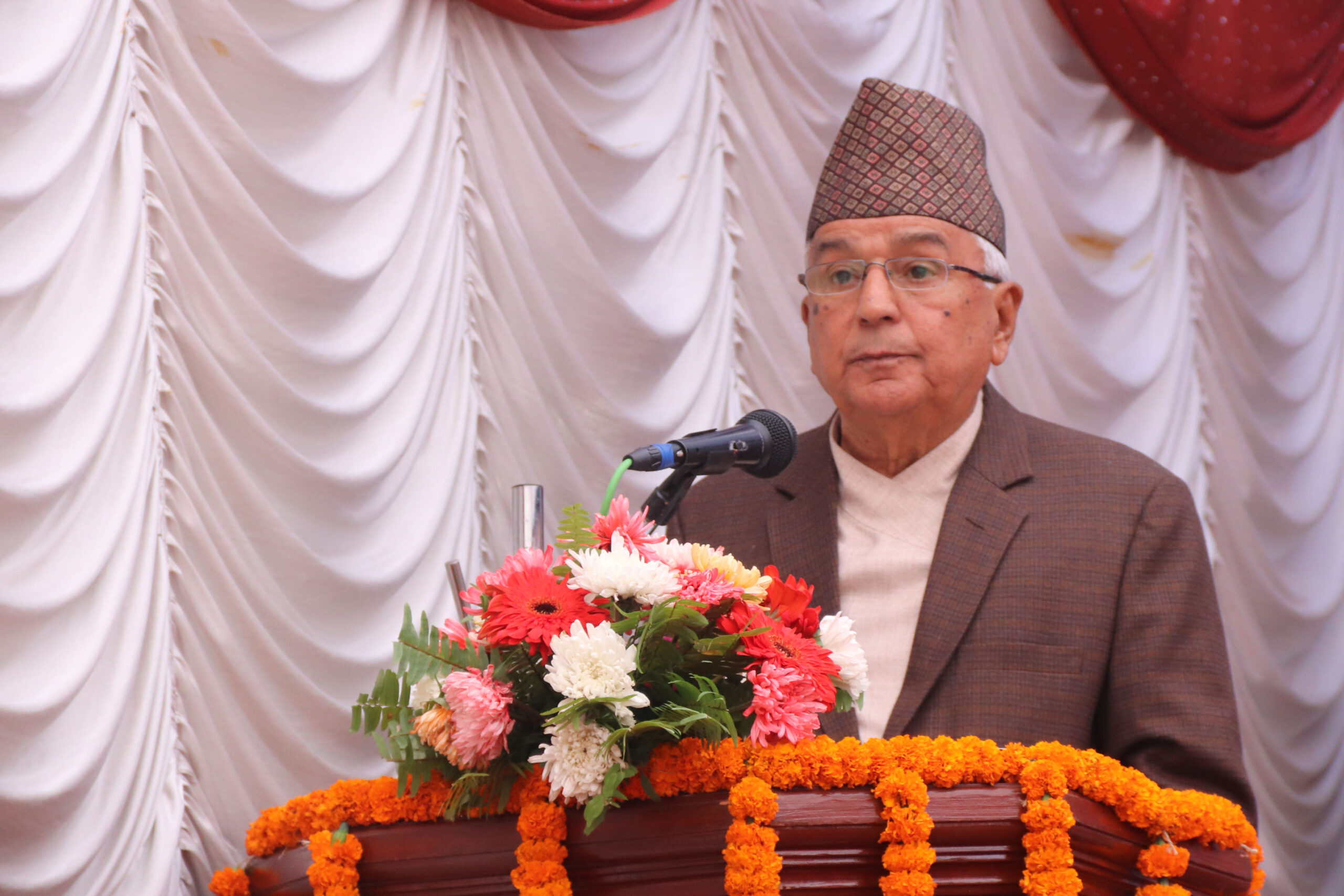KATHMANDU: In a recent development, President Ram Chandra Paudel took a keen interest in addressing three significant issues during a recent meeting with Prime Minister Pushpa Kamal Dahal “Prachanda”.
These concerns have highlighted crucial matters that have captured the nation’s attention lately.
First on the agenda was the continuous obstruction of parliamentary proceedings.
The main opposition party, CPN-UML, has been continuously causing disruptions, pushing for the formation of a high-level committee to delve into a notable gold smuggling case involving one quintal of gold.
This obstruction has raised questions about the smooth functioning of the legislative process.
Despite collaborative discussions involving prominent figures from ruling and opposition parties, led by the efforts of Speaker Devraj Ghimire, no conclusive solution has been reached.
Secondly, the President directed his attention toward the mounting protests orchestrated by educational organizations like PABSON and N-PABSON.
The bone of contention here is the Federal Education Bill, which has sparked widespread dissent among these groups.
A striking visual from this week (Thursday) was the protest staged by private schools and higher educational institutions at Kathmandu’s Maitighar area, underscoring the gravity of the situation.
Thirdly, the President’s inquiries extended to the status of the Truth and Reconciliation Commission (TRC).
This stands as a pressing concern, reflecting the challenges in achieving consensus on a matter of great significance.
President Paudel’s engagement with Prime Minister Dahal underscored another critical point – the impeded ability of legislators to effectively address the concerns of the people.
The persistent disruptions in Parliament have hindered lawmakers from engaging in meaningful discussions, drawing attention to the larger issue of how the parliamentary system is functioning.
These matters, brought to the forefront by President Paudel’s inquiries, shed light on the intricate web of challenges that Nepal’s political landscape currently faces.









Comment